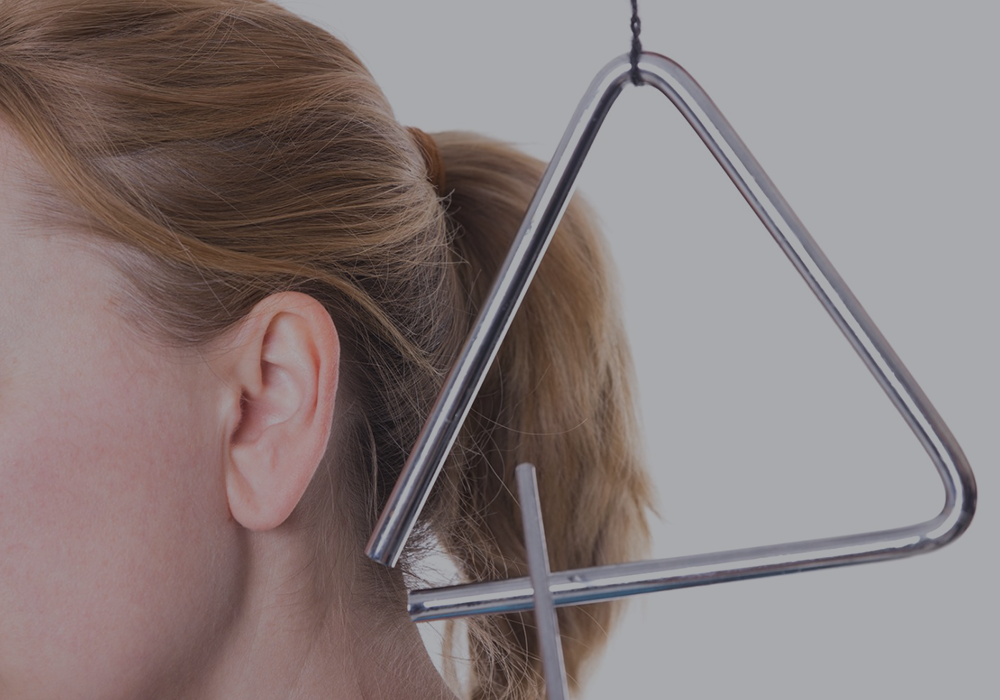Tinnitus is a constant or occasional ringing / buzzing / whistling / humming /clicking / or hissing in your ears. When experiencing tinnitus you should definitely see your audiologist, since it often is a symptom of an underlying problem. Tinnitus is very closely associated with hearing loss since roughly 90 percent of tinnitus cases occur with an underlying hearing loss. In most cases this hearing loss, causing the tinnitus is not yet noticeable – therefor tinnitus is often the first symptom of hearing loss.
Tinnitus is a constant or occasional ringing / buzzing / whistling / humming /clicking / or hissing in your ears. When experiencing tinnitus you should definitely see your audiologist, since it often is a symptom of an underlying problem. Tinnitus is very closely associated with hearing loss since roughly 90 percent of tinnitus cases occur with an underlying hearing loss. In most cases this hearing loss, causing the tinnitus is not yet noticeable – therefor tinnitus is often the first symptom of hearing loss.

Typical causes of tinnitus includes:
![]() Wax build up, sinus problems, middle ear problems, hearing loss, noise exposure
Wax build up, sinus problems, middle ear problems, hearing loss, noise exposure
![]() Noise exposure: Noise exposure can lead to hearing loss and tinnitus while continued exposure can worsen hearing loss and tinnitus.
Noise exposure: Noise exposure can lead to hearing loss and tinnitus while continued exposure can worsen hearing loss and tinnitus.
![]() Medication: More than 200 kinds of medication can cause tinnitus, amongst these are aspirin.
Medication: More than 200 kinds of medication can cause tinnitus, amongst these are aspirin.
Do you know what causes your tinnitus?
If you know what the cause is, you are one step closer to relief from tinnitus. Did you know that the audiologist is the health care professional trained and equipped to best handle your individual problem.
How we go about this?
- We ask you to complete a questionnaire to determine the degree that tinnitus affects your daily life. You can find the questionnaire here.
- We do a structural evaluation of your auditory system – the outer ear, middle ear and inner ear as well as the reflex pathways of the ear.
- We do a functional assessment of your ability to her certain sounds at certain pitches.
- We ask some questions about your medical history.
Through the steps of our assessment we can usually determine what likely causes of your tinnitus – and as soon as we know the cause, we can formulate a treatment plan.
Treatment for tinnitus:
![]() Hearing aids: Because 90% of people with tinnitus has an underlying hearing loss – the hearing loss needs to be treated – therefor hearing aids are commonly used. Hearing aids will mask the tinnitus to a certain extent and enhance hearing at the same time
Hearing aids: Because 90% of people with tinnitus has an underlying hearing loss – the hearing loss needs to be treated – therefor hearing aids are commonly used. Hearing aids will mask the tinnitus to a certain extent and enhance hearing at the same time
![]() Sound Therapy: Instruments are available which incorporates sound therapy for tinnitus. Different types of noises of chime-like sounds can be used with or without amplification to bring relief from tinnitus.
Sound Therapy: Instruments are available which incorporates sound therapy for tinnitus. Different types of noises of chime-like sounds can be used with or without amplification to bring relief from tinnitus.
![]() Counseling: Use of hearing aids and sound therapy has to be accompanied by education, counselling and stress management. In some cases it might be beneficial to include professionals from other disciplines.
Counseling: Use of hearing aids and sound therapy has to be accompanied by education, counselling and stress management. In some cases it might be beneficial to include professionals from other disciplines.

